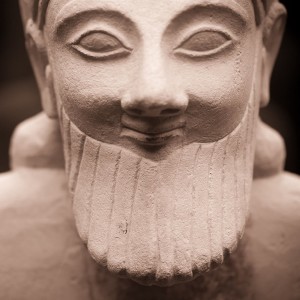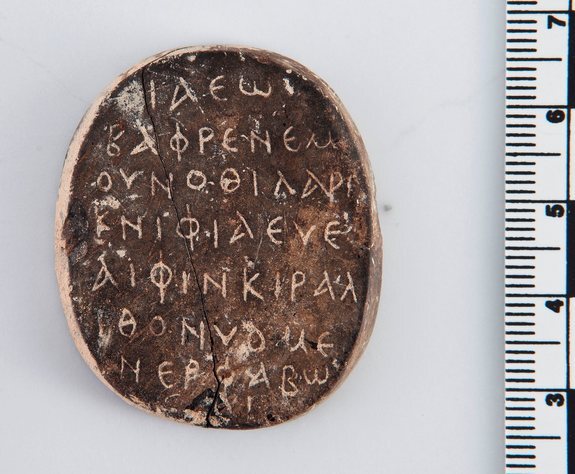The History of Cyprus Podcast
Welcome to The History of Cyprus Podcast -- a monthly series exploring the island’s past from 10,000 BCE to the 20th century. Each episode features in-depth conversations with leading scholars in archaeology, linguistics, political and social history, bringing academic insight to a wide audience. Together, we uncover the languages, cultures, conflicts, and legacies that shaped one of the Mediterranean’s most storied crossroads. Whether you’re a student, a history enthusiast, or just curious about Cyprus, this podcast offers something for everyone -- rooted in research, driven by storytelling. If you’d like to reach me, my name is Andreas. Please feel free to send me an email at cyprusthepodcast@gmail.com --------------------------------------------------------------- Follow The History of Cyprus Podcast Instagram and support the show on Patreon: https://www.patreon.com/TheHistoryofCyprusPodcast https://instagram.com/thehistoryofcyprus *The podcast image, ”Dressed for the Gods” (250BC) is from the British Museum taken by William Warby. Check out more of his work at flickr.com/photos/wwarby/
Episodes

Sunday Oct 15, 2023
Sunday Oct 15, 2023
Cabi Omer Efendi was an Ottoman statesman and military commander who lived from 1750 to 1814. He served as the Grand Vizier of the Ottoman Empire three times, and was known for his military successes, administrative skills, and political influence. For this month's primary source, he provides a direct account of the execution of Dragoman Hadjigeorgakis Kornesios in 1809 and as a springboard for Part 2 of my interview with Professor of Ottoman and Turkish Studies, Antonis Hadjiantoniou. The text in full:
"The dragoman of Cyprus caused sedition and discord by performing a great deal of villainy to the Muslim worshippers. He escaped from Cyprus, and when he arrived at Istanbul he was then arrested and executed in front of the Sublime Gate. His corpse was put upside-down in the basket of a broom-seller, carried around, and left outside the gate of the fish market. He thus became a warning to others. He was going to escape to Russia by converting his property and cash to bills of exchange. His house in Beşiktaş was given to the Chief tax inspector. It was rumored that all his property and cash totaled 5,500,000 kurush."
-Cabi Omer Efendi 1809

Monday Oct 02, 2023
Monday Oct 02, 2023
The Ottoman Period in Cyprus, which lasted from 1571 to 1878, was a significant era in the island's history as it had a lasting impact on its culture, society, and economy. During this period, the Ottoman Empire brought Islam to the island and established a system of local administration through appointed governors and officials. This resulted in a diverse population with a mix of Greek Orthodox Christians and Turkish Muslims. The Ottomans also left their mark on the island's architecture, art, and cuisine. The Ottoman Period also saw significant economic development, with the introduction of new crops such as tobacco and the establishment of trade links with other parts of the Ottoman Empire. This is part one of two part interview with Panteion & Stanford University Professor of Ottoman and Turkish Studies, Antonis Hadjikyriacou.
***Apologies for the audio quality on my end. My external microphone refused to connect prior to the recording.

Friday Sep 15, 2023
Friday Sep 15, 2023
Sokullu Mehmed Pasha was a prominent Ottoman statesman who served as the grand vizier (chief minister) of the Ottoman Empire for over a decade during the 16th century, under the reigns of Suleiman the Magnificent and Selim II. In this excerpt, he addresses the Venetian Ambassador, acknowledging their recent defeat at the Battle of Lepanto but reminding them that they now have Cyprus in their hands. Next month we have a two part interview with Professor of Ottoman and Turkish History, Antonis Hadjikyriacou. Here is the text in full:
"I am sensible, Ambassador. You have desired this audience with no other intention than to show the pretentiousness natural to your countrymen. I advise you as a friend, to lay aside those vain airs and consider that though you have indeed shaved us pretty close in Lepanto, we have shaved off your arms. And as the beard, when shaved, grows bigger than before, so our fleet, unless our woods fails us, will in a short space become larger and more numerous, whilst you can’t so much as think of recovering your arms -- for so I call the spacious and famous kingdom of Cyprus."
- Grand Vezier Sokullu Mehmet Pasha addressing the Venetian Ambassador, 1571

Saturday Sep 02, 2023
Saturday Sep 02, 2023
My guest this month is Dr. Jean-Denis Vigne, Emeritus Director of Research from the Natural History Museum in Paris. In this episode, we discuss the oldest farming village in a Mediterranean island (i.e., Klimonas) in addition to the significance of the Chirokitia Culture to the Neolithic Period and, of course, the earliest possible evidence of felid (cat) domestication: his finds in Shillourokambos that transformed our understanding of the period.

Tuesday Aug 15, 2023
Tuesday Aug 15, 2023
If you have ever visited Cyprus, you would have certainly noticed the abundance of cats on the island. On his way to Jaffa in 1484, the Venetian Friar, Francesco Suriano, noticed the same thing. His observations on the number of cats on the island is a perfect springboard in introducing my next month's guest: Dr. Jean-Denis Vigne, esteemed paleozoologist and Emeritus Director of Research at the Natural History Museum in Paris. His digs in Cyprus have changed our understanding of prehistory on the island and it is his work at Shillourokambos that revealed the earliest evidence of tamed cats. Please join me next month as I interview Dr. Vigne and discuss Cyprus and the first cats!
Don't forget to follow the History of Cyprus Podcast on Instagram and support the Channel through Patreon!

Wednesday Aug 02, 2023
Wednesday Aug 02, 2023
The Venetian period in Cyprus has been characterized as one of decline and decay. But was it? In this month's episode, Benjamin Arbel (Professor Emeritus Tel Aviv University) and leading historian on Venetian Cyprus challenges the "Black Legend" and discusses the social, economic and political impact of La Serenissima on the island of Cyprus.

Saturday Jul 15, 2023
Saturday Jul 15, 2023
George Boustronios, in his Narrative of the Chronicle of Cyprus 1456–1489, documents the transition from the Lusignan dynasty to Venice. In this month's excerpt, you'll hear a dramatized reading of last Queen of Cyprus, Catherine Cornaro, as she abdicates her throne, bequeathing Cyprus to the Republic of Venice, and departing Cyprus forever. Next month I invite Benjamin Arbel (University of Tel Aviv) to discuss Cyprus under Venetian rule.

Sunday Jul 02, 2023
Sunday Jul 02, 2023
There are seven olfactory families to categorize fragrances. Yet of the seven, only one is named for a place: Chypre. It's no surprise, then, that Cyprus' importance in perfumery has been known throughout antiquity. Maria Rosaria Belgiorno (Senior Associate Researcher of the Institute for Applied Technology to Cultural Heritage of the Italian National Research Council) has published dozens of articles on the Pyrgos-Mavroraki site in Cyprus, an industrial complex known for its metallurgical, viticultural, and for the purposes of this month's episode, its perfumery production. Her experimental work in recreating the techniques, scents and processes involved in ancient perfumery have been integral in our understanding of Cyprus' role in the production of perfume and its role in ancient life. Cyprus is, after all, Eὐώδεα Κύπρον (Fragrant Cyprus).

Thursday Jun 15, 2023
Thursday Jun 15, 2023
The Homeric Hymns -- named for their "Homeric" style -- are a collection of anonymously authored hymns dedicated to the major gods and goddesses in the Hellenic Pantheon. This particular excerpt, from the Hymn to Aphrodite, was chosen as this month's Primary Source to emphasize Aphrodite's and Cyprus' connection to "sweet-smelling temples" "heavenly oils," and "fragrant altars." For my next episode, I invite archaeologist Maria-Rosaria Belgiorno (ITABC-CNR) to discuss Cyprus' integral role in perfumery from the Bronze Age to the present and the archaeological finds at Pyrgos in Limassol.

Friday Jun 02, 2023
Friday Jun 02, 2023
In 1191, during the Third Crusade, King Richard I of England, also known as Richard the Lionheart, led his army to capture the island of Cyprus. The island was controlled by an illegitimate, self-styled emperor, Isaac Komnenos (Comnenus). Richard would rout Isaac's forces and, as legends have it, bind him in silver chains. The island remained under English rule until Richard sold it to the Knights Templar in 1192. Richard's conquest of Cyprus provided a valuable base for his military operations in the Eastern Mediterranean and allowed him to resupply his troops and ships. But what exactly transpired? What were Richard's motivations? And who was this usurper, Isaac Komnenos? Today, I welcome Dr. Angel Nicolaou-Konnari from the University of Cyprus to discuss King Richard the Lionheart's Conquest of Cyprus.











